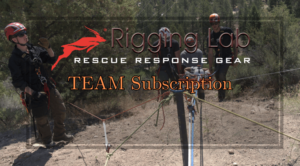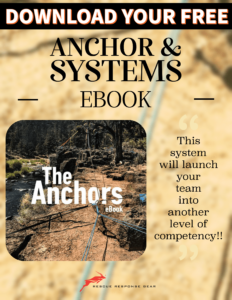Mountaineering and SAR Fitness
Whether you’re scaling towering peaks or navigating treacherous terrain as part of a search and rescue (SAR) team, fitness is more than a personal goal—it’s a professional necessity. Both activities demand strength, endurance, mental resilience, and skill. While mountaineering emphasizes individual performance, SAR operations require cohesive team fitness. In this blog, we break down the essential fitness components for both fields, with specific exercises and training regimens designed to help you perform at your best.
1. Cardiovascular Fitness
Cardiovascular endurance is the foundation for prolonged activity. In mountaineering, it allows climbers to ascend steep slopes and sustain activity at high altitudes. For SAR teams, cardiovascular fitness ensures stamina for extended searches and emergency responses.
Recommended Exercises:
- Mountaineering: Incorporate long hikes with a weighted pack to simulate the demands of alpine ascents. Supplement with steady-state runs and uphill cycling.
- SAR Teams: Include interval training such as a “1-minute sprint, 1-minute rest” cycle for six rounds to mimic the unpredictable intensity of SAR missions. Incorporate stair climbing to prepare for varied terrains.
2. Strength Training
Strength is crucial for carrying gear, lifting loads, and overcoming physical obstacles. Both mountaineers and SAR personnel benefit from a focus on compound movements that build full-body power.
Recommended Exercises:
- Compound Movements: Squats, deadlifts, and lunges develop lower body strength for endurance activities. Push-ups, pull-ups, and rows strengthen the upper body for hauling and climbing tasks.
- SAR Functional Strength: Incorporate sandbag carries, rescue dummy drags, and equipment lifts to simulate real-world scenarios.
3. Mobility and Flexibility
Navigating uneven terrain requires agility and range of motion. Improved flexibility reduces injury risk and allows for fluid movement, whether scaling a rock face or traversing dense forest.
Recommended Practices:
- Dynamic Stretching: Perform lunges, arm circles, and torso twists before activity.
- Yoga and Pilates: Build flexibility and core strength while improving balance and mental focus.
- Stretching Routine: Dedicate 10 minutes to post-workout static stretches targeting hamstrings, hip flexors, and shoulders.
4. Functional Fitness
Functional exercises mimic the physical demands of both mountaineering and SAR work. These movements train the body to handle real-life challenges efficiently.
Recommended Exercises:
- Weighted Backpack Hikes: Carry a weighted pack on inclines to build strength and endurance.
- Medicine Ball Slams and Throws: Develop explosive power for quick movements.
- Tire Flips and Sled Pushes: Strengthen the entire body and simulate heavy lifting tasks common in rescue operations.
5. Core Stability
A strong core is the linchpin for balance, stability, and efficient movement. Core strength supports climbing, carrying loads, and maintaining control during rescues.
Recommended Exercises:
- Planks: Engage all core muscles for stability.
- Russian Twists: Improve rotational strength.
- Hanging Leg Raises: Build lower abdominal strength for climbing and lifting tasks.
- Frequency: Perform core exercises 2–3 times per week.
6. Skill-Specific Training
Mastery of technical skills is essential. Skill-specific training prepares you for the unique challenges faced in mountaineering or SAR operations.
Mountaineering Focus:
- Practice climbing techniques on indoor walls or outdoor crags.
- Train in altitude acclimatization to prepare for high-altitude conditions.
SAR Team Focus:
- Rope skills: Practice knot tying, belaying, and rappelling.
- High-angle rescue training: Engage in simulations to build confidence in steep and technical terrain.
Seek out experienced trainers or courses to develop these skills safely and effectively.
Conclusion
Both mountaineering and search and rescue demand peak physical fitness and technical proficiency. By integrating cardiovascular fitness, strength training, mobility exercises, functional movements, core stability, and skill-specific drills into your routine, you can prepare for the unique challenges of these fields. Consistency, dedication, and specialized training will ensure you’re ready to tackle the mountains or save lives in the most demanding situations.
Stay disciplined, train with purpose, and embrace the transformative journey toward optimal performance in mountaineering and SAR.
More on Fitness for Rescuers
Peace on your Days
Lance









